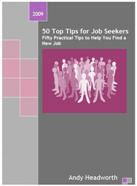I enjoyed this Article by Claire West @ www.freshbusinessthinking.com and wanted to share it with you……
The latest quarterly CIPD (Chartered Institute of Personnel and Development)/KPMG survey of employers’ recruitment and redundancy plans indicates that UK job prospects are deteriorating ‘at an alarming rate’ while the size of average pay rises is shrinking.
The winter Labour Market Outlook (LMO) survey of 892 UK employers, conducted by Ipsos Mori at the turn of the year, finds that more than one in three (36%) plan to cut jobs in the first quarter of 2009 – double the proportion expecting to make job cuts at the time of the previous LMO survey last autumn. The LMO records a negative balance of -9 percentage points between the proportion of employers planning to cut jobs (36%) and the proportion planning to hire additional staff (27%). This is the first such negative balance recorded in the five years since the LMO survey began in 2004.
The latest LMO survey also finds that employers intend to keep a much tighter rein on pay increases in the coming months. Those who plan pay reviews expect staff pay to increase on average by 2.6%, much lower than the 3.5% average increase expected last autumn. But as many as one in eight employers don’t intend to conduct a pay review at all in 2009.
John Philpott, Chief Economist at the Chartered Institute of Personnel and Development (CIPD) comments:“These latest LMO figures suggest that job prospects are deteriorating at an alarming rate. The labour market outlook is clearly even worse than expected at the turn of the year. Official statistics later this week will confirm that unemployment passed 2 million at the end of 2008. It now seems sadly inevitable that UK unemployment will top 3million before the jobs market finally starts to recover”.
Andrew Smith, Chief Economist at KPMG comments: "The speed of deterioration in the labour market is breath-taking. Higher unemployment will weaken demand which in turn will lead to higher unemployment. With interest rate policy running out of room this latest survey underlines the urgent need for alternative monetary policy measures - so called quantative easing - to ameliorate the risk of a downward spiral becoming entrenched and turning what already looks like a grim recession into something even worse."
Subscribe to:
Post Comments (Atom)






No comments:
Post a Comment